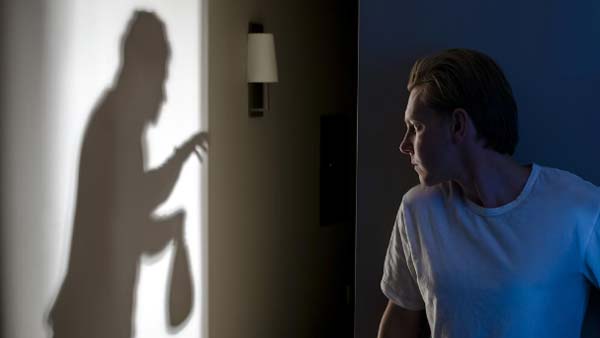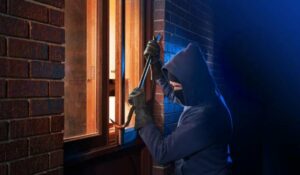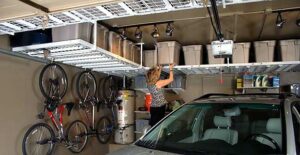According to the Federal Bureau of Investigation (FBI), burglaries occur in America every 15 seconds. To make matters worse, residential buildings record 73% of the total number of these robberies. However, this shouldn’t deter anyone from buying a new home in areas of their choice. But, how do you protect your new home?

Safety should be at the top of your list when buying and moving into your house. Here are tips on how to protect your new home and keep it safe from burglary.
Secure Your Doors and Windows
Inspect all the doors and windows of your home. From the front and the back, up to the kitchen, the bathroom, and the bedroom. Ensure that they are functioning properly and repair anything that is broken.
A recent study showed that the front door is actually the main access through which about 32% of burglars gain entry into a house. Therefore, do not compromise the security of your home because you are more concerned about how beautiful your front door should look from the outside.
A security expert from Himmel’s Architecture and Hardware—a Louisiana company that specializes in the installation of doors, panels, exit doors, fire extinguishers, and other home security hardware—said that “in as much as you want to have pretty doors, you also need to conduct minor checks to ensure that someone won’t be able to unlock your door from the outside. Make sure the mail slot is not wider than usual, the hinges are nicely and tightly fixed, and you can even install a deadbolt or a peephole if there’s none”.
He further stated that windows should also be checked to ensure that the frames are strong and not hollow or loose.
Talking about windows, most of them actually come with weak and ineffective latches. You can replace them with levers or locks that have strong keys. Circle your new home, checking all the windows to ensure that there are no loopholes. Another option is to insert laminated glass to make the locks firm and protect the window from external access.
The FBI’s Uniform Crime Report said that first-story windows account for 23% of burglaries on residential properties, making it the second common point of entry. It further stated that 22% of break-ins are through the back door and 9% through the garage.
However, it’s advised that you not only secure these focal points but also protect the second-story windows, basement, attic and any area of your home that has a door or window.
You can also connect sensors and alarms to all the entry points of your home. If you can’t afford a fully controlled smart security system, you can purchase and install the basic ones. Something basic is better than nothing at all.
While you’re at it, evaluate your home and figure out what areas will need smoke detectors and other basic installations. It’s not a bad idea to have an emergency exit. This will be of great use in case a robbery or hazard occurs in your presence. If you have a “secured yard” signpost, make it visible.
Talk to Your Neighbors
Your neighbors are your friends. They are usually the first people to help prevent break-ins or assist you in case a burglary occurs. You just moved in, so they obviously have a better knowledge of the area. Do not go about doing anything without inquiring a thing or two from them.
First of all, you will have to try your best and create a good relationship with your neighbors. Meet and talk to them as often as possible. This makes them feel reliable. Then they are more likely to keep an eye on your property when you are away.
A good neighbor will always keep you updated on the latest happenings in and around your area – even when it seems like something fishy is going down. You can also join the neighborhood watch – if there’s one in your area.
Eliminate Every Hiding Place
According to the FBI, more homes are burgled during the day because the occupants are either at work, school or going about their daily activities. So it makes sense to trim down trees, flower beds, shrubs, and bushes around your house that might serve as hiding places for burglars.
This is not a reason for you to leave your house unprotected at night. Even if there’s a neighborhood watch, you can make things easier by lighting up your landscape. Fix bright lights at the back, front, and other strategic points of your yard. For more security, you can make use of lights that come with motion sensors. Your home is less likely to get invaded if the burglar feels that so much spotlight will be on them.
Furthermore, bright lights also eliminate hiding places in the yard. Without any dark spots, burglars will feel less inclined to invade.
Put Up Security Signs
Himmel’s security expert suggested that when looking to purchase a security package from a provider, ask for those that come with window decals and “keep off” signs. This is because potential burglars are less likely to select your house when they see these signs.
If you can’t afford a fully controlled smart security system (as stated earlier) you can simply put up the signage. Even if it’s not as effective as an actual one, it can still deter burglars because they would believe that an alarm might go off once they step into your yard.
Plan Ahead
Regardless of all the security systems and measures you have put in place, you need a Plan B in case something goes wrong. If there are other occupants of your home, you all can have a talk and determine some habits everyone can adopt to better protect the house against burglary.
Talk about how to use the alarm system, how to interact with strangers from within, locking of windows and doors at night or when nobody is home – and if necessary, a curfew. Ensure that everyone (no matter how young or old) knows how to exit in case there’s an emergency and what to do if burglars (are about to) break in.
You can even have them walk around inside and outside of the house to see if there’s anything you didn’t notice. On a lighter note, you all can even perform a mock burglary to see if your security measures are tight enough.
Learn More
Find out all the security resources available in your area, including how to contact the local police. In some principalities, law enforcement officers are open to visiting your home and giving tips on how to protect your home against burglary.



